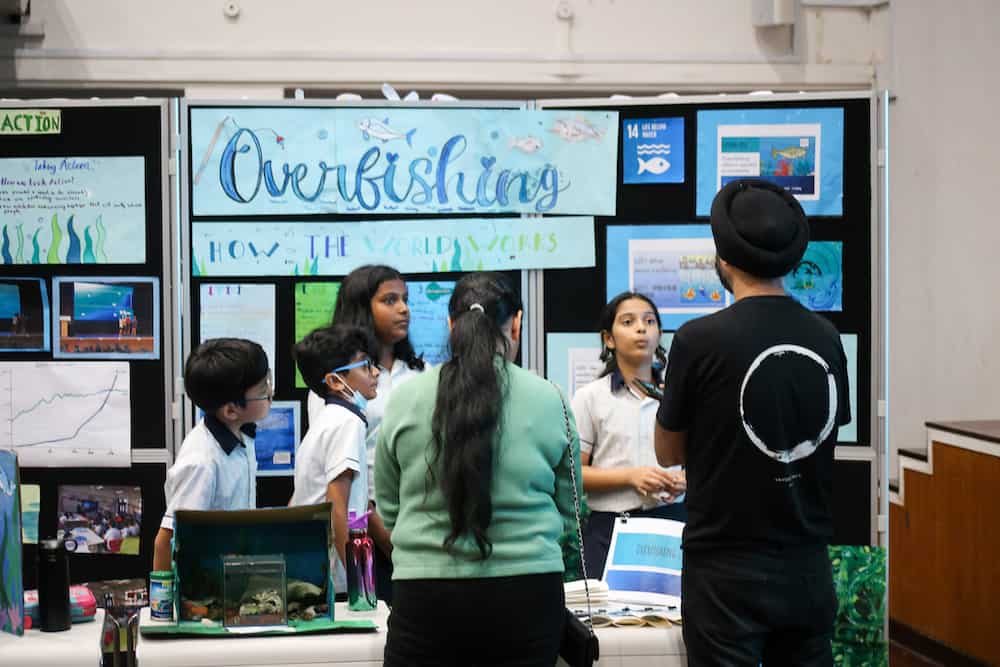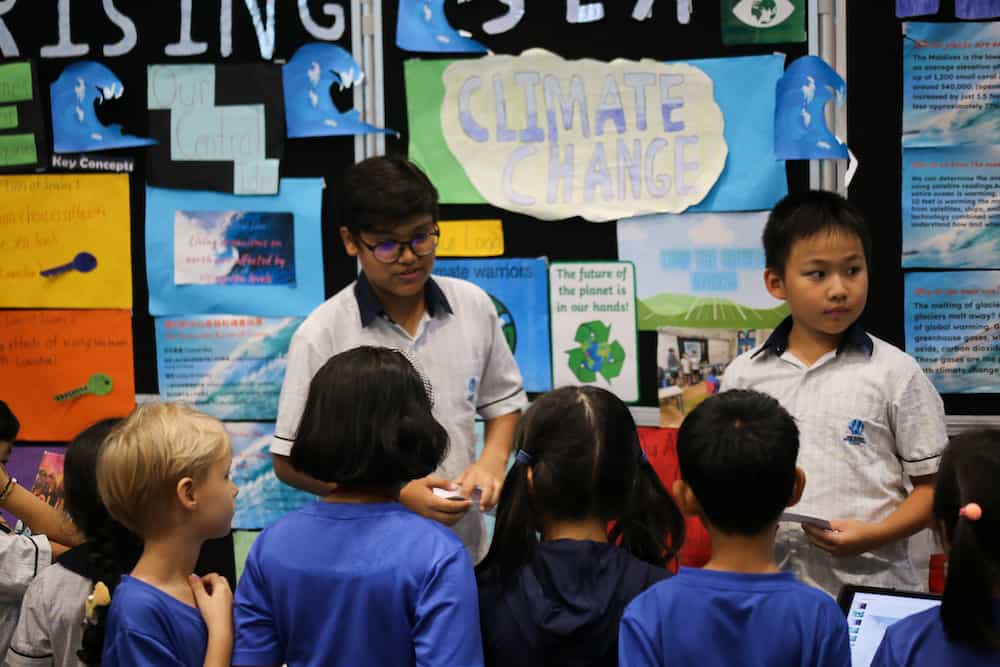As educators realise that traditional learning methods are not the most effective tactics for our modern world, project-based learning has begun to take centre stage. This approach to learning engages students in a way that allows them to develop their critical thinking skills, apply their newfound knowledge and collaborate with others to come up with a possible solution.
There’s a reason why project-based learning is a trending topic in education — it works, and it offers seemingly endless benefits.
What Is Project-Based Learning?
Project-based learning, commonly called PBL, is a pedagogical approach that requires students to work in groups and collaborate on a project that is centred around a specific topic. In general, the groups have access to a consistent set of parameters and are charged with developing a solution to a complex question. Project-based learning is known for being a hands-on, inquiry-led approach, and it has shown incredible results when effectively implemented in the classroom setting.
What Is PBL in Education?
PBL is an instructional method that is becoming increasingly common in classrooms around the world. It allows teachers to act as subtle facilitators rather than instructors, giving them more autonomy to adapt as necessary to meet the needs of their students. In addition, it allows students to engage in meaningful and effective discussions as they work together to create a solution for their specific project. According to Destination Imagination, research shows that PBL in education is leading to improved learning outcomes, higher test scores and deeper understanding of the topics being presented.
Key Elements of Project-Based Learning
Project-based learning is a structural method that, according to Literacy in Focus, requires teachers to rely on several key elements:
Present a Challenging Problem
The project begins by presenting students with a challenging question or complex problem. The key is to submit a complex question that will be compelling or interesting to the students. They will be expected to connect this question with real-world issues they see and experience.
Require Research

Project-based learning experiences are not designed to take place during one class period. Instead, they are supposed to be lengthy endeavours that require thorough research to complete. The question presented to the students should inspire them to begin diving into the question, and their research process should include:
- Identifying valuable and reliable sources
- Discovering new information
- Applying newfound knowledge to the question
- Developing ideas for the solution
Prove Authenticity
If nothing else, project-based learning must be relevant to the lives of the students who are participating in these projects. This allows them to form a deep and lasting connection to the topic at hand and to hone critical thinking skills.
Allow Voice and Choice
Student groups should be relatively autonomous throughout their project. The purpose of PBL is to provide students with an opportunity to explore a topic and develop innovative solutions. Students should be able to rely on their preferred research methods and present their project in a way that suits them.
Encourage Reflection
As students work on their projects, teachers need to give them time to step back and reflect on the process, their progress and their results. These moments of reflection allow students to revisit what they have learnt and how they have learnt.
Offer Feedback and Request Revisions
Critiques and edits play a critical role in the project-based learning experience, as students recognise that this is part of collaborating with others in the real world. Teachers and peers should offer constructive feedback at specific points throughout the project and request edits that will ultimately improve the outcomes.
Present a Product
In the final stages of the project, students should create a presentation and present their product to the class. This enhances their communication skills and allows them to showcase their hard work through their multiphase/multistep project.
One of the best examples of project-based learning at OWIS is our PYP Exhibition. This Grade 5 exhibition is the culmination of the student’s journey through the IB Primary Years Programme. Students work together in groups on topics of their choice and present their skills in research, critical thinking and problem solving to put together a presentation with action points. These projects are displayed as a wonderful showcase of the skills of our students, and the event is opened up to parents and families so that they can come in and view the amazing work of their children and celebrate their efforts.

What are the Benefits of Project-Based Learning for Primary School Students?
These are some of the most well-known benefits of project-based learning:
It Encourages Collaboration
Project-based learning experiences are designed so that students can work together in groups to develop an innovative solution. They are immersed in an environment where they have to discuss their ideas with their classmates and value their perspectives as they work through the steps of the project. Collaboration is only learned through hands-on experience, and project-based learning allows students to discover what it is like in a real-world setting.
It Allows Students to Think Outside the Box
These types of learning experiences are intentionally planned for students to take the lead — there are no clear-cut directions as to how to accomplish the task, and there is no step-by-step guide for students to follow. Instead, groups are presented with one common question, and they are given complete autonomy when it comes to deciding how to answer the question and solve the problem. This type of freedom was not common in classroom settings just a few decades ago, but educators are quickly seeing that students thrive when they can use their voices and make decisions throughout the learning experience.
It Promotes Confidence in Students
The agency students enjoy throughout a project-based learning experience helps them feel empowered. They appreciate being trusted with an opportunity to direct their learning experience and work with their peers to develop a creative solution. This type of independence instils confidence in young learners. They learn by making mistakes; they understand that there is no such thing as failure in a project-based learning experience, and they are excited to take control of the process with their peers.
It Instils Resilience in Students
The very nature of project-based learning encourages failure. Mistakes are part of the process, reflection is embedded into the experience, and revisions are to be expected. As a result, students become immune to the fear of failure. They know that if their idea doesn’t work out as planned, they can simply start over and try again. Resilience is a necessary 21st-century skill, and project-based learning is one of the best ways to nurture resilience positively and productively.
Project-Based Learning at OWIS Singapore
At OWIS Singapore, we have long believed that hands-on learning leads to deep knowledge acquisition and lasting connections, which is why it has always played a vital role in our classroom environment. Across all subject areas and grade levels, students have the opportunity to enjoy project-based learning and realise the benefits of this innovative approach.
For instance, in Grade 3 in Primary School, for the transdisciplinary theme ‘Sharing the planet’ with the central idea that water is a resource shared by all living things, our students took an active role in investigating their water usage at home and at school. This hands-on approach allowed them to connect the theoretical knowledge with real world experiences, fostering a deeper understanding of the issue.
In addition to monitoring their own water usage, students delved into research about the global water shortage. This led to a greater sense of environmental responsibility and awareness.
Students then came up with ideas to save water in the school community and proposed effective solutions. They created posters, videos, and slogans as a creative way to communicate their ideas to the school community. This allowed students to express themselves and practise persuasive communication skills.
Students were actively involved in the project from start to finish, and they took ownership of their learning and actions. They learnt that they have the power to make positive changes in their community and worked together with their peers to achieve their goals. This project-based learning engaged students in a holistic learning experience and equipped them with valuable skills and values that can have a positive impact on their future and the world at large.
To learn more about the advantages of project-based learning and how we put PBL into action through our IB curricula at OWIS Singapore, contact us today and schedule a campus tour.















